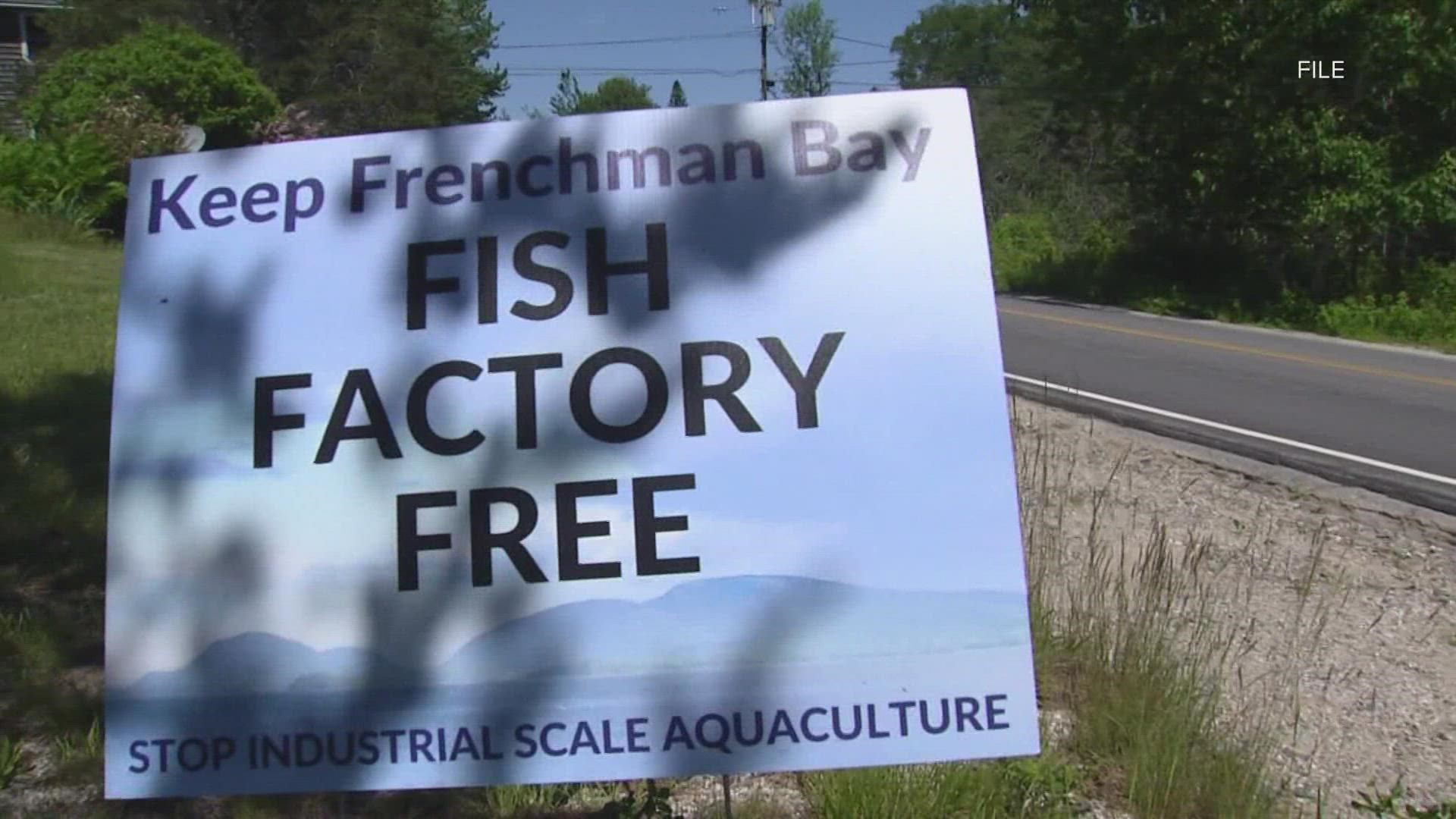MAINE, USA — American Aquafarms pulled out of the lawsuit it filed appealing the state's decision to terminate the company's proposed salmon farm project on Tuesday.
The project has been the subject of controversy among lobstermen and activist groups who feared the project would negatively impact the environmental waters near Acadia National Park.
According to a news release issued by Protect Maine’s Fishing Heritage Foundation on Tuesday, last April, the Maine Department of Marine Resources dismissed American Aquafarms' application for leases on two sixty-acre sites in Frenchman Bay, saying it repeatedly failed to find a state-approved hatchery for salmon eggs.
"The company subsequently filed suit against the Maine DMR in Cumberland County Superior Court to overturn the department’s action," the release states.
Frenchman Bay United, the coalition that led the effort against the massive proposed industrial salmon farm in the waters beside Acadia National Park, hailed American Aquafarms' decision on Tuesday, according to the release.
“As an intervenor on behalf of the Maine DMR, Frenchman Bay United agreed to the dismissal of this lawsuit,” FBU Board President Henry Sharpe said in the release. “We have always believed that DMR made the right decision in refusing to accept the company’s lease applications and that this lawsuit had little merit. We again call on American Aquafarms to end any plans it may have to re-apply for permits for this or other destructive and highly polluting projects.”
The company told the Portland Press Herald Tuesday night that it still plans to submit a new application in the future.
"The 'Stipulation of Dismissal' filed with the court yesterday and agreed to by lawyers for the state and Frenchman Bay United was done so 'with prejudice,' meaning that American Aquafarms cannot refile the same claim again and must start the permitting process from the beginning if it comes back with a similar project," the release stated.
“We hope that this is the end for American Aquafarms, but we remain vigilant and ready to challenge any subsequent applications they may file that would jeopardize Maine’s brand: clean water, thriving natural habitats, pristine wilderness, and a robust, owner-operated working waterfront," Sharpe said. "We’ll also continue to push science-based policies for legislative and regulatory change that champion the same virtues, ones that prevent the industrialization of our iconic coastline."

